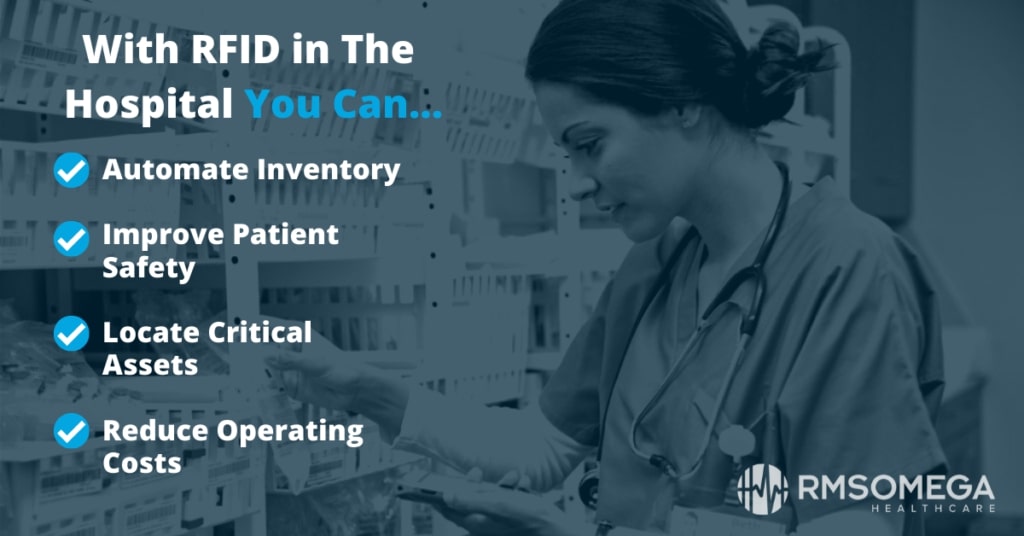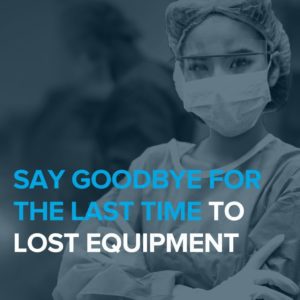Location, location, location! The saying is not only important for real estate but for healthcare too. Between patients, medicine, and equipment, there is an overwhelming amount of moving parts and locations to monitor throughout healthcare facilities. Fortunately, RFID technology provides a practical way to automate location tracking of critical items. Implementing a hospital RFID system doesn’t have to be complex. With fixed RFID readers and passive tags, facilities can set up automated healthcare asset tracking in a quick and simple manner.

For hospitals, RFID serves as an effective way to automate the tracking of critical items. More importantly, hospitals that have implemented RFID systems can benefit from:
- Automatic & Accurate Inventory
- Improved Patient Safety
- Timely Location of Assets
- Reduced Operating Costs
Watch the video for a hospital RFID system overview!
Automatic & Accurate Inventory
By strategically positioning fixed RFID readers at dock doors and entry points, hospitals can automate inventory counts. In a passive system like this, readers will read tags as they pass through a checkpoint or portal and automatically update the inventory count in your asset management software. This allows hospital staff to spend less time scanning in items while eliminating errors that occur during inventory receiving and shipping. It is also a quick way for administrators to verify what the hospital received in each shipment and identify any shortages. Although, if your warehouse implements the same system you won’t encounter those errors.
Track Patients, Equipment & Medications For Improved Safety
One of the most significant benefits that RFID technology can bring to hospitals is enhanced patient safety through proper tracking. This includes:
- Creating an accountable record for sending the right medication to the right patient.
- Verifying that tools went through proper cleaning & autoclaving processes.
- Making sure patients are sent to the right area of the hospital.
- Confirming the right equipment is in each patient’s room.

To further enhance security measures, our RFID asset management software can send alerts and notifications when an item like a medication ends up in the wrong location.
Quickly Locate Critical Assets
The healthcare industry cannot afford to waste time looking for proper equipment and supplies. Furthermore, hospitals cannot financially afford to keep replacing equipment that goes missing. As a result of implementing a passive RFID system, hospital staff can be assured of current locations and monitor asset movements throughout a facility. With RFID checkpoints stationed at doorways, rooms, and laundry chutes you will always have information readily available on an item’s last location, preventing critical supplies from ending up in the trash, laundry, or leaving out the door.
See How St. Luke’s Hospital RFID System Helped Lower Operating Costs
In 2018, U.S. hospitals spent a combined $36 billion on medical and surgical supplies, an average of $11.9 million per hospital. At the same time, hospitals are put under pressure to reduce these operating costs while expenses continue to rise.
Being able to locate lost and missing equipment with RFID can significantly reduce a hospital’s operating costs. St Luke’s Health System in Kansas City had the same challenges that most hospitals face. After implementing an RFID system they were able to reduce inventory on hand by $500,000 and save 12% on bulk orders.
